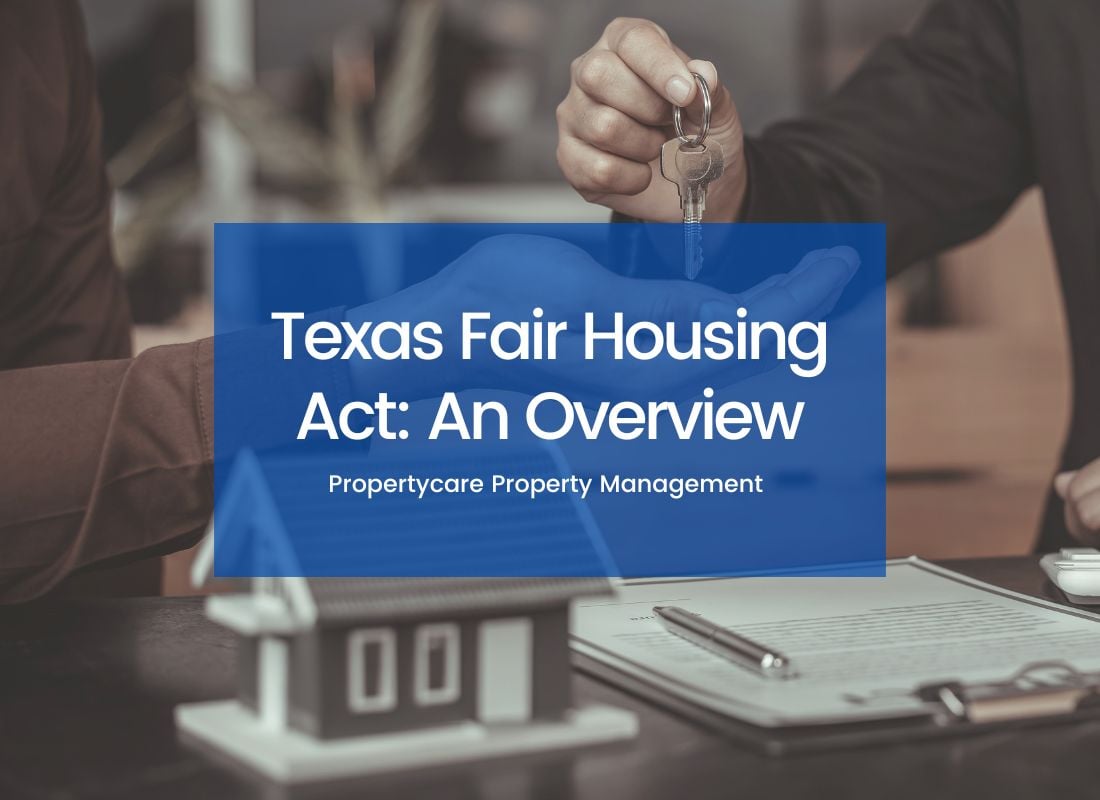Key Takeaways
- Fair Housing Laws in Texas Align with Federal Protections – In Texas, landlords must comply with both state and federal Fair Housing rights. Specifically the Fair Housing Act prohibits housing discrimination based on race, color, religion, sex, national origin, familial status, and disability. Unlike some states that have expanded protections, Texas adheres strictly to these seven federally recognized protected classes.
- Landlords Must Follow Consistent and Non-Discriminatory Practices – To remain legally compliant, landlords should apply consistent screening policies, market their dwellings fairly, and provide reasonable accommodations for tenants with disabilities. Violations of Fair Housing regulations can result in significant legal and financial penalties.
As a landlord in Texas, all your interactions with tenants must be guided by the state’s landlord-tenant laws. Among other things, these laws include treating tenants fairly and equally regardless of certain protected classes.
As a landlord, your aim should be to treat tenants in accordance with the federal and state regulations whether in situations that require responding to repair requests, evicting a problem tenant, or marketing the unit, and everything in between.
Fair Housing violations can result in legal and financial penalties. That’s why landlords need to familiarize themselves with all applicable laws before renting out their units. Luckily for you, this guide by Propertycare Property Management has you covered, whether you’re just getting started as a landlord or are simply looking to learn more.
What is the Fair Housing Law?
The Fair Housing Law is an important component of Title VIII of the Civil Rights Act of 1968. It prohibits housing discrimination based on certain protected classes. The act was passed on April 11th, 1968 after intense pressure from the civil rights movement and the public for fair housing.
The Federal Fair Housing Act applies to all the 50 states. The 1968 Act protects those seeking housing based on 7 protected classes. The classes are race, color, religion, sex, nationality, familial status, and disability.

What is the Fair Housing Act in Texas?
Some states have also passed legislation to add extra protected classes to that list. However, the state of Texas has yet to add any extra protected classes. As such, there are only 7 protected classes under the Fair Housing Act in Texas, those being race, color, religion, sex, nationality, familial status, and disability.
Who Enforces Fair Housing Violations in Texas?
The Texas Workforce Commission’s Civil Rights Division as well as the Department of Housing and Community Affairs handle Fair Housing complaints at the state level. They work with the U.S. Department of Housing and Urban Development (HUD), who oversee complaints at the federal level. The following are some of the behaviors that can be seen as discriminatory when directed to a member of a protected group:
- Falsely claiming a dwelling isn’t available just to steer a person belonging to a certain group away.
- Providing a person belonging to certain protected classes with different leasing conditions. For example, asking a person with children to pay higher security deposits and rent prices.
- Advertising your vacant dwelling in a way that shows either preference or limitation towards certain protected groups. For example, making statements such as, “Ideal for Single Professionals,” or “Suitable for Male Renters Only.”
- Refusing to provide tenants with physical or mental disabilities with reasonable accommodations and modifications.
- Steering a person belonging to certain groups towards certain neighborhoods.
- Asking prospective tenants questions that touch on their protected classes. Such as, “Are you married?”, “How many children do you have?”, or “Do you go to church?”.

Exemptions Under the Fair Housing Act
All housing providers must adhere to the team of the law to prevent Fair Housing Complaints. Providers include real estate brokers organization, landlords, mortgage lending services, real estate agents, and more. However, the following categories are exempt from the 1968 Fair Housing Act’s provisions:
- Owner-Occupied Buildings with Four or Fewer Units – The owner must live in one of the four units and rent out the others themselves without using a real estate broker.
- Privately Owned Single-Family Dwellings – The landlord must satisfy three requirements for the exemption to apply. They must not own more than three such dwellings at any given time, not use brokerage services, or advertise the dwelling in a discriminatory manner.
- Housing Run by Religious Organizations – These are allowed to turn away members who don’t subscribe to their faith. The membership in the organization must, however, not be discriminatory based on race, color, nationality, or any other protected class.
- Housing Run by Private Clubs – This applies as long as the membership isn’t discriminatory based on race, color, or nationality.
- Housing for the Elderly – Housing developments specifically designed and intended for the elderly can be exempt only based on age and familial status.
How to Stay Legal Compliant with the Fair Housing Act in Texas
As a housing provider, the following are some of the things you could do to stay legally compliant with the provisions of the act:

- Market your vacant dwelling without expressing favoritism or limitation towards certain groups of prospective tenants.
- Have a consistent screening process. If you check credit ratings, for instance, make sure you do it for all prospective tenants.
- Have standard policies. Enforce rental rules and handle eviction processes consistently, regardless of a person’s background.
- Provide persons with disabilities with reasonable accommodations and modifications. For instance, even with a no-pets policy, allow their reasonable requests for service animals.
Bottom Line
Now you know what the Fair Housing Act in Texas entails to prevent accidental acts of housing discrimination. Treating tenants fairly, equally, and respectfully is the best way to achieve success as a landlord in the state of Texas.
For expert help managing your rental dwellings, look no further than Propertycare Property Management. Our full suite of property management services help you maximize your returns while reducing your stress. Get in touch to learn more!
Contact Our Property Managers Now!
Disclaimer: Please note that the information provided in this blog is intended for general guidance and should not be considered as a replacement for professional legal advice. It is important to be aware that laws pertaining to property management may change, rendering this information outdated by the time you read it.

